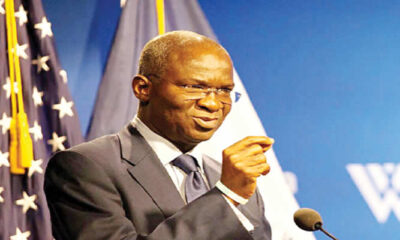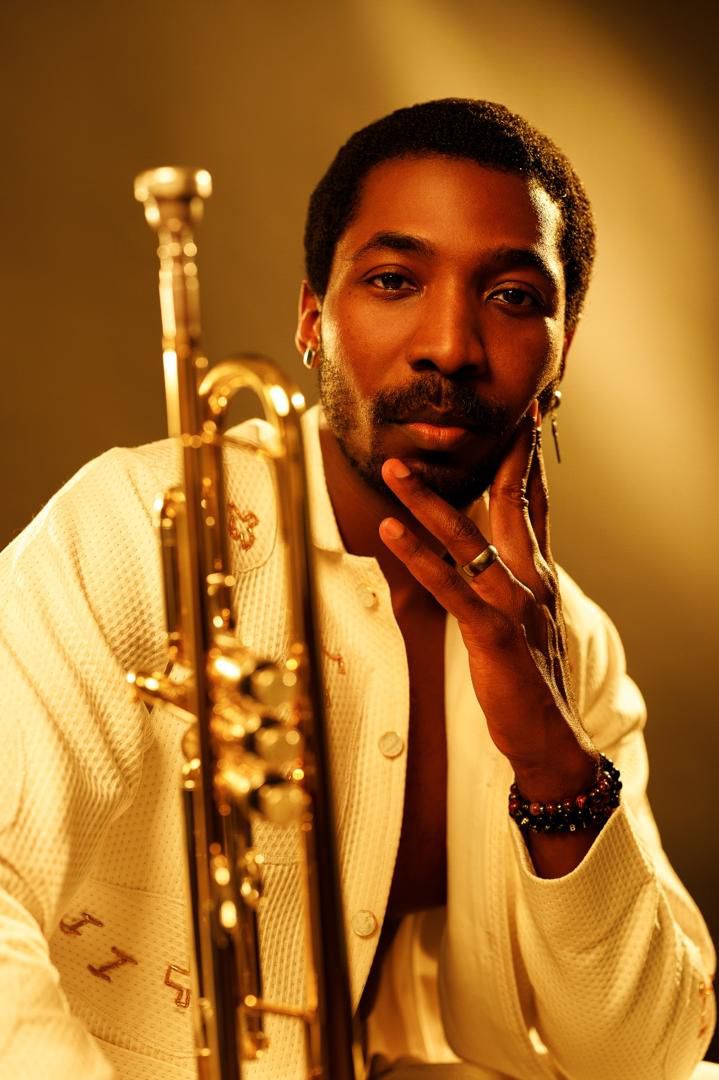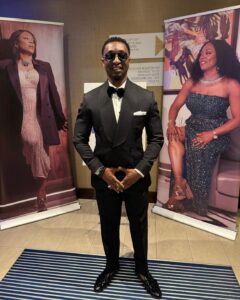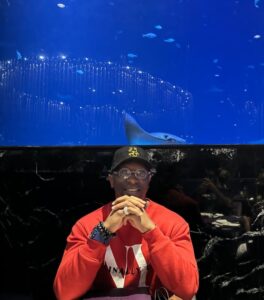 Fielding questions from journalists recently on the preparations for the celebration of his 70th birthday, King Sunny Ade has touched on several things as they affect his long career. One of those is on the issue of whether he harbours any fear, having come this far in life.
Fielding questions from journalists recently on the preparations for the celebration of his 70th birthday, King Sunny Ade has touched on several things as they affect his long career. One of those is on the issue of whether he harbours any fear, having come this far in life.
“The only fear I used to have is; I don’t know when God will say stop giving your fans what I have. But that has stopped because God does his things in his own way,” he revealed.
One of the turning points of his career own the family planning campaign duet, Wait For Me, he did with fellow veteran, Onyeka Onwenu. The success the song garnered came with its downside. However, KSA took advantage of the opportunity to dispel the age long rumour that he had an affair with Onyeka Onwenu.
Explaining, he said that any talk about having an affair with the songstress was to promote song. “Do I have a crush; she’s a good sister. She’s my colleague. Recently, we played together and before then, if you remember the day I played with Wizkid, she was also there. We are colleagues,” he said.
Comparing the music of yesteryear with today’s music, he said. “Yesteryears have come to stay.”
“For the new generation that is coming now the difference, I’m proud to say is that I’m playing indigenous music. What they are playing today is computer music. It doesn’t mean I cannot use computer, but I have to be very careful of what I use it for. Any music that sells well, the world buys it and it is a glorious thing for Nigeria but let me be clear, anything you cannot dictate for your hand to do, you cannot control.”
Unknown to many, his career as an entertainer started as with a travelling theatre troupe lead by Chief Moses Adejumo Olaiya, popularly known as Baba Sala. On Baba Sala insistence, he dropped the life of a minstrel and took up that of a singer.
He extols the sage in so many words; “Baba Sala is my boss and he will continue to be my boss for life. I owe him that gratitude for life. I was playing percussion in his band and he was playing guitar and a couple of instruments. I was in charge of the music in the drama section, playing conga. He actually prompted me to go into music with a proviso that I should go and if after nine months, I found it tough, I should come back. He told me, go and try and that if does not work, come back.”
However, entering the grand age of the septuagenarians, one would like to know whether he has reached the height of his achievements of whether he still has other plans.
“Let me say it clearly to you, I am not God. I can only say what I think I can do but he alone can say what I will do,” said KSA.
Being showcased alongside globally recognised artistes like The Beatle’s is no easy feat and the artiste says that it is like a crowning point of his career. This is evident in his guitar being put on display at the Music Instrument Museum, Phoenix, Arizona.
“My guitar and costume were donated to the Musical Instruments Museum in Arizona about four years ago. I have never seen a museum as big as that with pictures of myself that I have never seen before. The Nigerian Corner is a beehive of visitors. I had the privilege of playing before a huge audience comprising musicologists and musicians. I had the audience to sing along with me.”
Only recently KSA scored a victory in the N500million copyright suit filed against African Songs and its subsidiary, Take Your Choice Records (TYC). And for him, it was a victory well deserved.
“The case was won by me and they were told to pay me N500million but they are yet to do that. The next thing I saw was an appeal to we are still waiting to know what will happen next. I also hope I get back my master tapes.”
As one who belongs to another generation, KSA refuses to join the bandwagon to condemn today’s music because, as he puts it, Nigerian music is Nigerian music.
“There are good musicians in this country today. Because you are part of them, you are part of the entertainment industry. I used to say to those I mentor, we have made some mistakes. Please check what we have done wrong, remove it. Replace it with good ones. Return it to us, then we will have better music. Our ancestors too made some mistakes which we corrected,” he said.
On the quality of music being churned out today, he says; “Before you can say one particular music has quality, it depends on what you use to play it. I would say music is always there. It is for the producer to find that particular sound that would please the listeners. As for equipments; in Nigeria today, you can count how many studios we have. You can also count how many equipments they have. I’ve talked about the compositions. Those things influence them.”
However, he says, he has no particular preference when it comes to present day artistes as they all come with their unique sounds.
“I love all of them because they have different styles. You cannot compare them to each other. You can only group them under hip-hop. Even in juju music, we have different styles. As long as they are doing something unique, I’m ok with it,” he says.
With his gait and presence of mind for a man his age, one would agree that the King is not too old to take a new wife but he says that is not in his agenda, for now. In his words, it would be out place to make such move at his age.
“Are you praying for me or cursing me. If you see some of my grandchildren, you will think they are my wives. Taking a new wife now, I don’t know. It is not on my agenda at the moment. By the grace of God, during my 70th birthday concert, the world will see my children and grandchildren singing and dancing to my songs on stage.”
Year after year, KSA’s birthday has been celebrated in grand style but this year’s celebration is unique in that, not only does he clock the golden age of 70, the celebration has been extended to run throughout the month. The activities which started on September 1 with a special prayer by the General Overseer of the Redeem Christian Church of God, EA Adeboye. Other activities slated include a gospel music night, special prayers, family celebration, a book launch and a host of others. The events will culminate in a grand finale where musicians from all over the world will gather to do him homage.
Born September 22, 1946 KSA is a Nigerian musician, singer-songwriter, multi-instrumentalist, and a pioneer of modern world music who has been classed as one of the most influential musicians of all time.

 BIG STORY3 days ago
BIG STORY3 days ago
 BIG STORY3 days ago
BIG STORY3 days ago
 BIG STORY3 days ago
BIG STORY3 days ago
 BIG STORY2 days ago
BIG STORY2 days ago
 BIG STORY3 days ago
BIG STORY3 days ago
 BIG STORY19 hours ago
BIG STORY19 hours ago
 BIG STORY3 days ago
BIG STORY3 days ago
 BIG STORY3 days ago
BIG STORY3 days ago




 Fielding questions from journalists recently on the preparations for the celebration of his 70th birthday, King Sunny Ade has touched on several things as they affect his long career. One of those is on the issue of whether he harbours any fear, having come this far in life.
Fielding questions from journalists recently on the preparations for the celebration of his 70th birthday, King Sunny Ade has touched on several things as they affect his long career. One of those is on the issue of whether he harbours any fear, having come this far in life.














